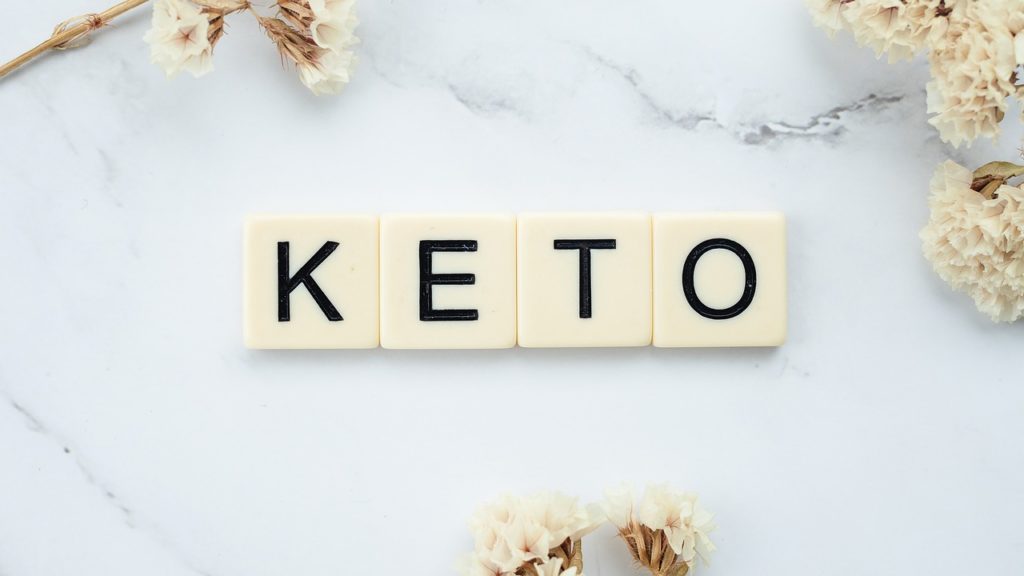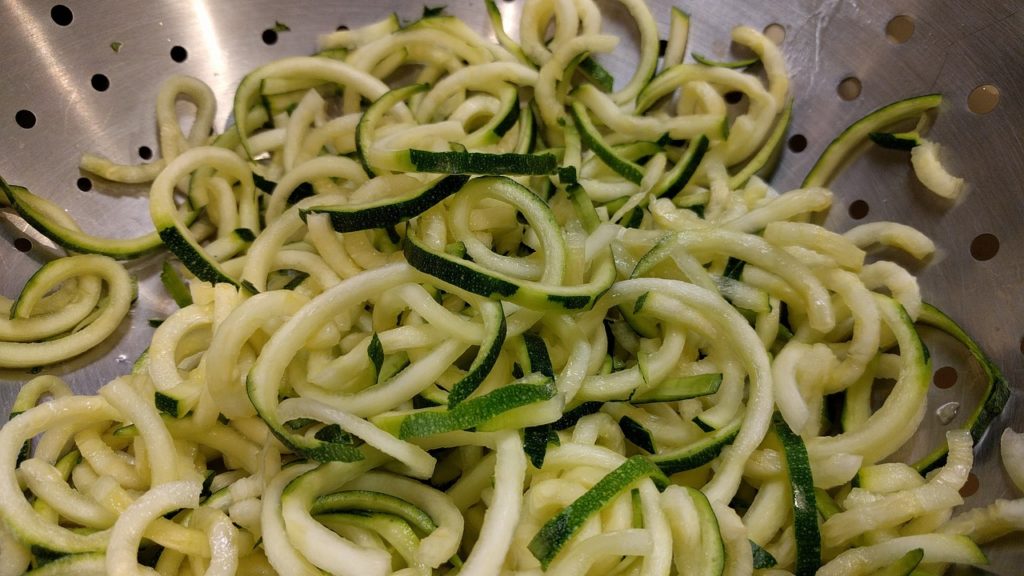So, you’ve heard about the ketogenic diet and you’re curious to learn more? You’ve come to the right place! The ketogenic diet, often referred to as the “keto” diet, has gained popularity in recent years for its potential health benefits and weight loss results. In this beginner’s handbook, we will break down everything you need to know about the ketogenic diet to help you get started on your journey to better health.

This image is property of pixabay.com.
What is the Ketogenic Diet?
Let’s start with the basics – what exactly is the ketogenic diet? The keto diet is a high-fat, low-carbohydrate eating plan that has been shown to help the body enter a state of ketosis. Ketosis is a natural metabolic state where the body uses fat for fuel instead of carbohydrates. By drastically reducing your carb intake and increasing your fat intake, you can train your body to become more efficient at burning fat for energy.
How Does Ketosis Work?
When you restrict carbohydrates in your diet, your body doesn’t have its usual source of glucose for energy. Instead, it turns to fat stores for fuel, which results in the production of molecules called ketones. These ketones are then used by your body and brain as an alternative source of energy. This shift from burning glucose to burning fat is what puts your body in a state of ketosis.
Benefits of the Ketogenic Diet
Now that you understand the basics of how the ketogenic diet works, let’s dive into some of the potential benefits you may experience when following this eating plan.
Weight Loss
One of the most well-known benefits of the ketogenic diet is weight loss. By reducing your carbohydrate intake and increasing your fat intake, you can promote fat burning and weight loss. Additionally, the high fat and protein content of the diet can help you feel fuller for longer, reducing cravings and overall calorie intake.
Improved Energy Levels
Many people who follow the ketogenic diet report feeling more energized and alert throughout the day. By stabilizing blood sugar levels and providing a steady source of energy from fat, the keto diet can help you avoid the energy crashes that often come with high-carb meals.
Mental Clarity
Another common benefit of the ketogenic diet is improved mental clarity and focus. The ketones produced during ketosis have been shown to have neuroprotective properties, which can help enhance cognitive function and brain health.
Better Blood Sugar Control
For those with insulin resistance or type 2 diabetes, the ketogenic diet has been shown to help improve blood sugar levels and insulin sensitivity. By reducing carbohydrate intake and focusing on healthy fats and proteins, you can better regulate your blood sugar and reduce the risk of insulin spikes.
Foods to Eat on the Ketogenic Diet
Now that you know the benefits of the ketogenic diet, let’s talk about what you can actually eat on this eating plan. The key to a successful keto diet is to focus on high-fat, low-carb foods that will help you reach and maintain a state of ketosis.
Healthy Fats
Healthy fats are a staple of the ketogenic diet and should make up the majority of your daily calorie intake. Some healthy fats to include in your keto diet are:
- Avocados
- Olive oil
- Coconut oil
- Butter
- Nuts and seeds
Protein Sources
While the keto diet is not a high-protein diet, it’s still important to include moderate amounts of protein in your meals. Some protein sources that are keto-friendly include:
- Meat (beef, chicken, pork)
- Fish (salmon, tuna, sardines)
- Eggs
- Greek yogurt
Low-Carb Vegetables
Vegetables are an essential part of any healthy diet, including the ketogenic diet. However, it’s important to choose low-carb vegetables that won’t kick you out of ketosis. Some low-carb vegetables to include in your meals are:
- Leafy greens (spinach, kale, arugula)
- Broccoli
- Cauliflower
- Zucchini
- Bell peppers
Snacks and Treats
While traditional snacks and treats may be off-limits on the keto diet, there are still plenty of delicious options to satisfy your cravings. Some keto-friendly snack options include:
- Cheese
- Pork rinds
- Nuts and seeds
- Dark chocolate (at least 70% cocoa)
Foods to Avoid on the Ketogenic Diet
In addition to knowing what foods to eat on the ketogenic diet, it’s equally important to know which foods to avoid. To stay in ketosis and reap the benefits of the keto diet, steer clear of high-carb and processed foods that can spike your blood sugar levels.
Sugary Foods
Foods high in sugar should be avoided on the ketogenic diet, as they can quickly kick you out of ketosis. Some sugary foods to avoid include:
- Candy
- Soda
- Pastries
- Ice cream
- Fruit juices
Grains and Starches
High-carb grains and starches are another category of foods to avoid on the keto diet. These foods can quickly sabotage your efforts to reach ketosis. Some grains and starches to steer clear of include:
- Bread
- Pasta
- Rice
- Potatoes
- Oats
Processed Foods
Processed foods are often loaded with hidden sugars and unhealthy fats, making them less than ideal for a keto diet. Instead, opt for whole, nutrient-dense foods that will support your health and weight loss goals.
Fruits
While fruits are healthy, they can be high in carbs and sugar, making them unsuitable for the ketogenic diet. If you’re following a strict keto plan, it’s best to limit your intake of fruits and focus on low-carb options like berries in moderation.

This image is property of pixabay.com.
Meal Planning Tips for the Ketogenic Diet
Meal planning is essential for success on the ketogenic diet. By following these tips, you can make keto-friendly meals that are delicious, satisfying, and easy to prepare.
Plan Your Meals Ahead of Time
One of the key components of successful meal planning on the ketogenic diet is to plan your meals in advance. Take some time each week to set aside and plan out your meals and snacks so that you’re prepared and less likely to reach for unhealthy options.
Focus on Whole Foods
When planning your keto meals, focus on whole, nutrient-dense foods that will support your health and weight loss goals. This includes healthy fats, high-quality proteins, and low-carb vegetables.
Batch Cook and Meal Prep
To save time and streamline your meal planning process, consider batch cooking and meal prepping your meals for the week. Cook large batches of proteins, vegetables, and healthy fats that you can mix and match throughout the week for quick and easy meals.
Get Creative with Recipes
The key to sticking to the ketogenic diet long-term is to keep your meals interesting and flavorful. Get creative with recipes and try new ingredients and flavor combinations to keep things exciting in the kitchen.
Supplements for the Ketogenic Diet
While the ketogenic diet can provide a wide range of health benefits, some people may benefit from taking supplements to support their nutrient needs on this eating plan.
Electrolytes
When you first start the ketogenic diet, you may experience the “keto flu”, which is a collection of symptoms like fatigue, headaches, and muscle cramps that can occur as your body adjusts to burning fat for fuel. Supplementing with electrolytes like magnesium, potassium, and sodium can help alleviate these symptoms and keep you feeling your best.
MCT Oil
MCT (medium-chain triglyceride) oil is a type of fat that is easily converted to ketones, making it a popular supplement for those following the ketogenic diet. Adding MCT oil to your meals or coffee can help enhance ketone production and support your energy levels.
Omega-3 Fatty Acids
Omega-3 fatty acids are essential for brain health, heart health, and overall well-being. Since the keto diet may limit your intake of omega-3-rich foods like fatty fish, supplementing with a high-quality fish oil can help ensure you’re getting an adequate amount of this important nutrient.
Vitamin D
Vitamin D is a crucial nutrient that plays a role in immune function, bone health, and mood regulation. Since vitamin D is primarily found in sunlight and very few foods, supplementing with vitamin D can help support your overall health while following the ketogenic diet.

This image is property of pixabay.com.
Common Mistakes to Avoid on the Ketogenic Diet
While the ketogenic diet can be incredibly beneficial for many people, there are some common mistakes to avoid to ensure you’re getting the most out of this eating plan.
Eating Too Many Carbs
The most common mistake people make on the ketogenic diet is eating too many carbs. To stay in ketosis, it’s important to keep your carb intake low and focus on healthy fats and proteins.
Not Eating Enough Fat
Another mistake people make on the keto diet is not eating enough fat. Since the keto diet is a high-fat eating plan, it’s essential to prioritize healthy fats to support your energy levels and weight loss goals.
Not Drinking Enough Water
When you’re in ketosis, your body releases stored water, which can lead to dehydration if you’re not drinking enough fluids. Make sure to drink plenty of water throughout the day to stay hydrated and support your overall health.
Ignoring Nutrient Needs
While the keto diet can be effective for weight loss and improving certain health conditions, it’s essential to pay attention to your nutrient needs and ensure you’re getting a wide range of vitamins and minerals from whole, nutrient-dense foods.
Final Thoughts
Congratulations on taking the first step towards a healthier lifestyle by learning more about the ketogenic diet! With the information provided in this beginner’s handbook, you have everything you need to get started on your keto journey and experience the many benefits this eating plan has to offer. Remember, consistency is key, so stay committed to your goals and enjoy the many delicious and satisfying foods that the ketogenic diet has to offer. Here’s to your health and well-being on your keto adventure!


